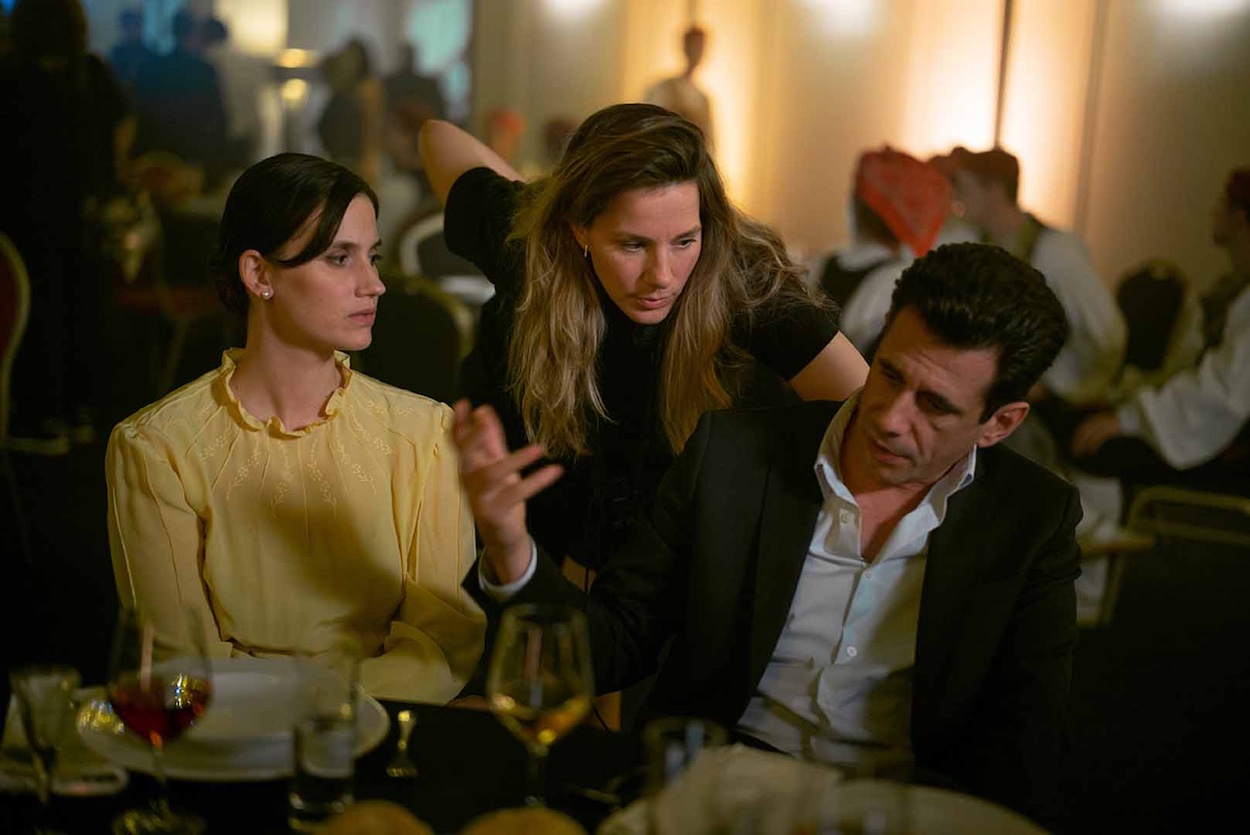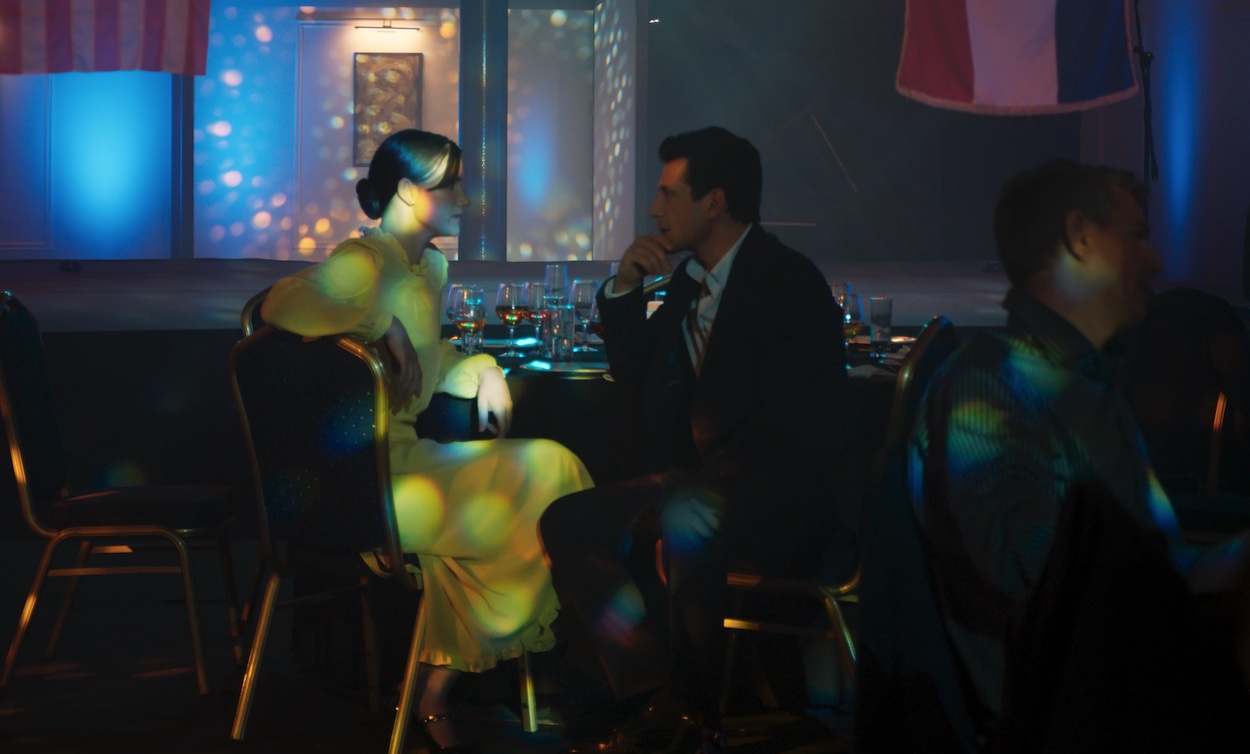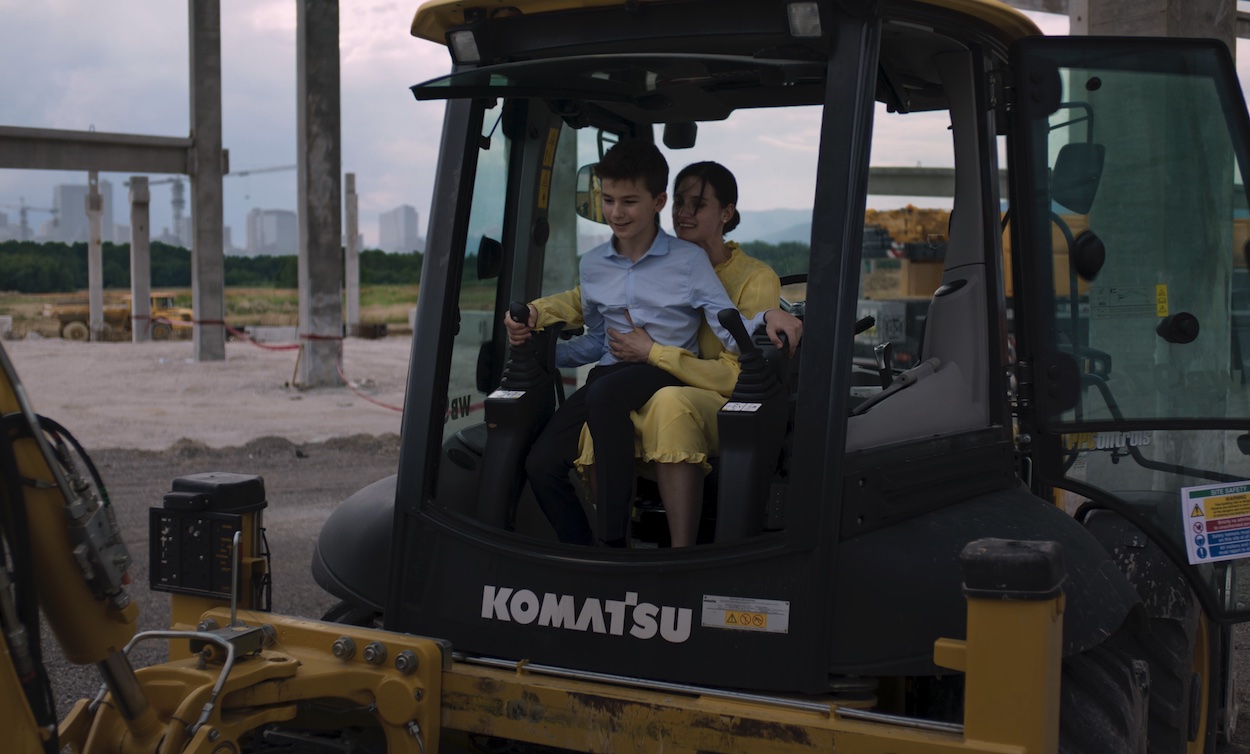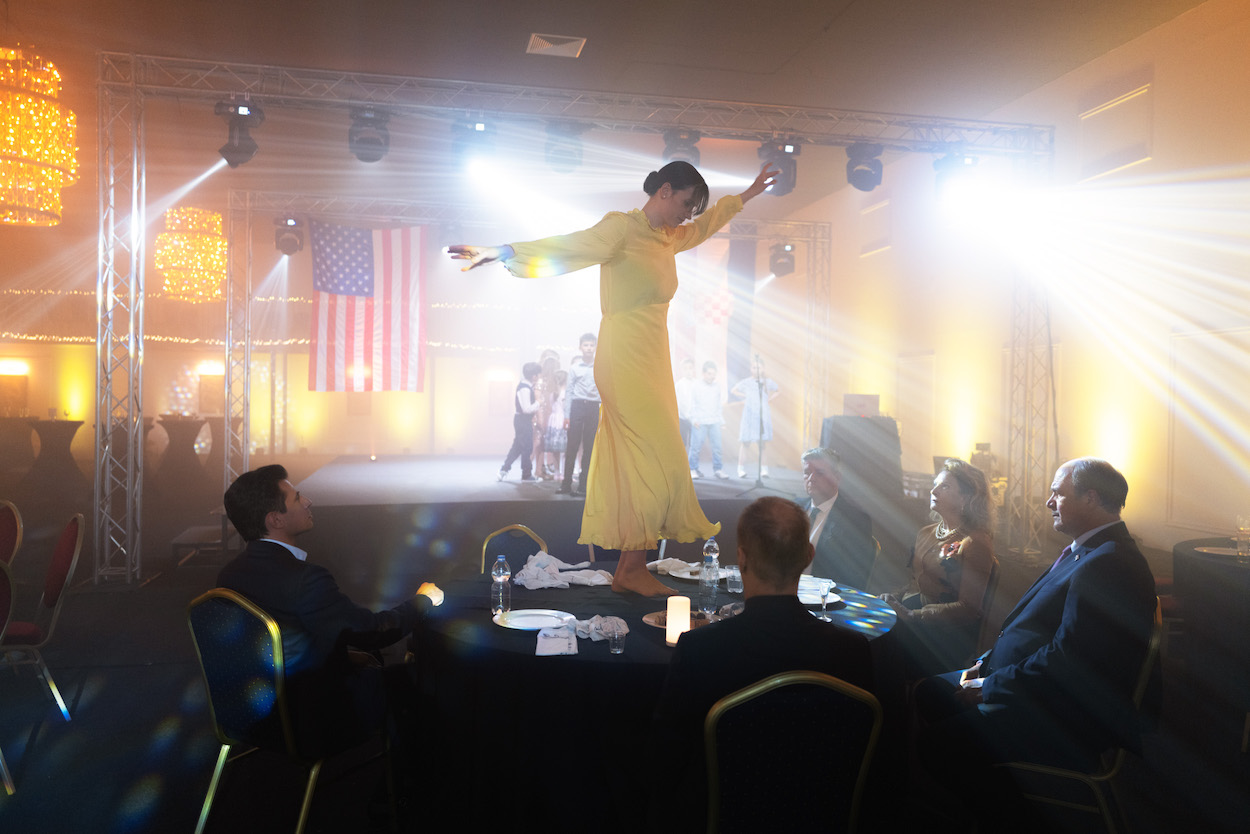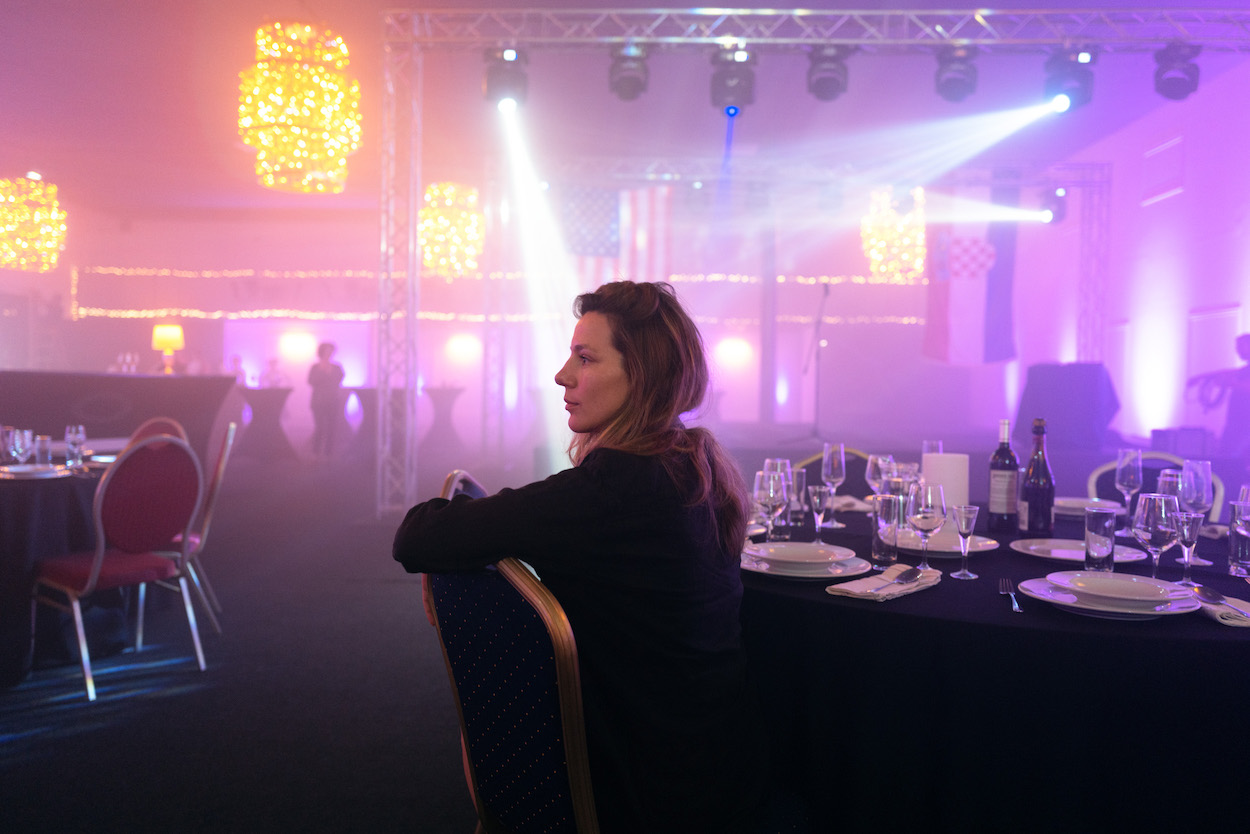Antoneta Alamat Kusijanović with cast Danica Curcic and Alban Ukaj
You come from a creative background, having worked as a child actor and later moving into production, with a producing degree from the Film Academy in Zagreb, and experience in producing TV formats, shorts, commercials in Croatia – what was the lightbulb moment when you decided to become a director instead?
When you put it this way, I guess I am from a creative background, and I have not thought of myself that way until later in life. I never thought about becoming a filmmaker, but when I think of my early childhood, I always wanted to touch people, if not at least provoke them.
Let’s talk about Stane, your latest short film for Miu Miu’s Women’s Tales, which feels autobiographical in places – particularly the lead character, Stane, a Croatian immigrant in New York and is stepping up to run a construction firm (you also worked for a short period as a project manager in a construction firm in New York). You’re also working on your second feature, about motherhood, having recently become a mother yourself. How far do you draw on your own lived experiences and perspective for creative inspiration? Where do you draw the line?
Being an immigrant, working in construction in NYC, being a new mother, but these are merely the settings and circumstances. The characters that interest me are universally relatable, women in angst, in conflict, torn apart, unable to move, unable to reach where their freedom lies. I believe I am all my characters and none of them.
Miu Miu Presents, Stane
Was it refreshing to move back into the confines and pace of a short film, off the back of your Camera d’Or-winning feature film, Murina?
Short film is equally if not more complicated than making a feature. You need to develop the character deeply, regardless of how many minutes it holds the screen. The same holds true for costume design, art department, visual language and so on, yet you get to dance with it for such a short time and there is no time for mistakes – you have one bad day and that is 30% of your film.
Both Murina and Stane explore aspects of womanhood, power struggles and the patriarchy, within the framework of family dynamics. Do you consider yourself a feminist filmmaker, or is that a label you prefer to avoid?
I never think of any social message when making a film, I just intuitively follow the character and their circumstances naturally emerge if you are determined to portray the truth.
Miu Miu, Stane
Strictly speaking, Stane counts as a ‘fashion film’ – how big a part did the clothes play in the film, and what lay behind the choice of costumes, particularly the contrast between Stane’s masculine, oversized workwear and that uber-feminine yellow dress?
Fashion, a costume, or a way for a character to non-verbally express [themselves]. Stane wears these layers of protection, oversized clothes in the very masculine construction site. Later at the community celebration she is dressed as if for the first communion, possibly not her choice, but Stane roars in that dress and gives it the life it deserved by the end.
Dialogue is kept to a minimum in the film, which relies instead on expressions, actions and reactions to tell the story – was that a conscious decision?
I think movement and behaviour tell more story than dialogue can ever say. I like to communicate that way.
I particularly loved the scene of Stane kicking off her shoes and dancing barefoot on the table – it felt spontaneous and liberating, and really captured the essence of the message of female power at the heart of the film. What were your favourite aspects of the film, and why?
A dance itself, creating something with your team, you prepare for it together, rehearse it together, then execute it. Everyone gives their sweat, tears and joy – and together we create a film that is somehow like witchcraft. I believe in that magic.
Having delved into immigrant culture, violence, misogyny and the adolescent experience in your films so far, what other topics are you keen to explore in future projects?
I’m always interested in desire, and regrets.
What are you working on at the moment?
Exactly that 😉
Antoneta Alamat Kusijanović
Interview by Selena Schleh
INFO:
Smuggler website
@smugglersite
@antonetaalamatkusijanovic


